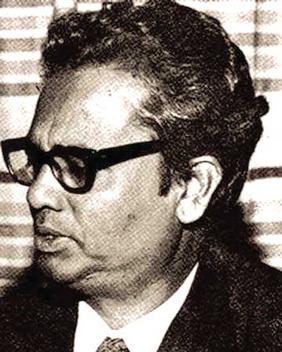
Munier Choudhury was a Bangladeshi educationist, playwright, literary critic and political dissident. He was a victim of the mass killing of Bangladeshi intellectuals in 1971. He was awarded Independence Day Award in 1980, by the then president Ziaur Rahman's government, posthumously.
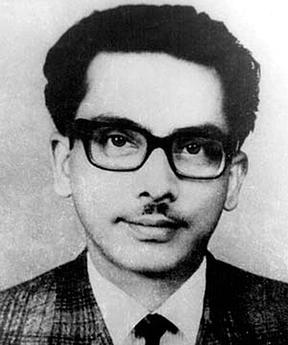
Shahidullah Kaiser was a Bangladeshi novelist and writer. He was awarded Bangla Academy Literary Award in 1969, Ekushey Padak in 1983 and Independence Day Award in 1998.
Anwar Pasha (1928–1971) was a Bangladeshi novelist. He was killed in 1971.
Mufazzal Haider Chaudhury was a prominent Bengali essayist, prized scholar of Bengali literature, educator and linguist of the Bengali language.

In 1971, the Pakistan Army and their local collaborators, most notably the extreme right wing militia group Al-Badr, engaged in the systematic execution of Bengali intellectuals during the Bangladesh Liberation War of 1971. Bengali intellectuals were abducted, tortured and killed during the entire duration of the war as part of the 1971 Bangladesh genocide. However, the largest number of systematic executions took place on 25 March and 14 December 1971, two dates that bookend the conflict. 14 December is commemorated in Bangladesh as Martyred Intellectuals Day.
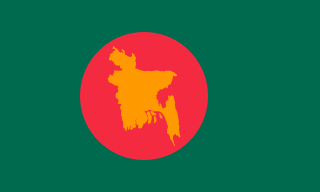
The Independence and National Day is celebrated on 26 March as a national holiday in Bangladesh. It commemorates the country's declaration of independence from Pakistan in the early hours of March 26, 1971.

1971 Dhaka University massacre was the mass murder of students and faculty at the University of Dhaka in East Pakistan by the Pakistan Army, at the beginning of what would become the Bangladesh Liberation War. In March 1971, the Pakistan Army Eastern Wing Commander Tikka Khan launched Operation Searchlight on the orders of dictator Yahya Khan to crush the Bengali nationalist movement. As part of the operation, the army launched an assault on the university campus. It is the deadliest university attack in history.

Mohammed Fazle Rabbee was a renowned cardiologist and a published medical researcher. He was the joint professor of Cardiology and Internal Medicine at Dhaka Medical College and Hospital. He was noted for his progressive thinking and unconventional beliefs for a modern Bengali society. He was murdered in the intellectual killing during the 1971 genocide in Bangladesh by Pakistani army and its local collaborators, the Jamaat-affiliated Al-Badr militia.
Chowdhury Mueen-Uddin, is a British citizen convicted of war crimes committed during the Bangladesh Liberation War which involved the murder of Bengali intellectuals in collaboration with the Pakistan Army. After the liberation of Bangladesh, Chowdhury escaped from Bangladesh and attained British citizenship. Bangladesh has yet to file a request with the UK government to bring back Mueen, and the two countries do not have any extradition treaty signed between them.

Martyred Intellectuals Day is observed on 14 December in Bangladesh to commemorate the large number of Bangladeshi intellectuals killed by Pakistani forces and their collaborators during the Bangladesh Liberation War, particularly on 25 March and 14 December 1971. The killings were undertaken with the goal of annihilating the intellectual class of what was then East Pakistan. Two days after the events of 14 December on 16 December, Bangladesh became independent through the surrender of Pakistani forces.
Ashrafuz Zaman Khan is a Pakistani Bengali American who is one of the convicted masterminds of 1971 killing of Bengali intellectuals. In 1971, he was a member of the Central Committee of the Islami Chhatra Sangha. After liberation he went to Pakistan and worked for Radio Pakistan. Later, he moved to New York and presently heads the Queens branch of Islamic Circle of North America (ICNA). He was sentenced to death in absentia by the International War Crimes Tribunal for killing 18 Bengali intellectuals during the last days of the 1971 Liberation War of Bangladesh.

Sirajul Haque Khan, born in the district of Noakhali, was a Bengali educationist and martyred intellectual of 1971.
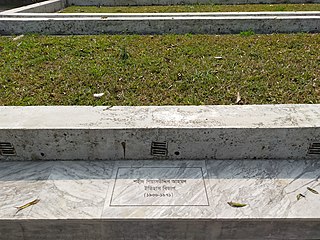
Ghyasuddin Ahmed was a Bengali educator who was born in the district of Narsingdi.

Syed Nazmul Haque, born in the district of Khulna, was a martyred Bengali journalist.
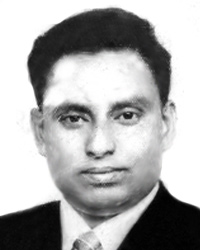
Nizamuddin Ahmed, was a Bangladeshi journalist. On 12 December 1971, he was abducted and killed by an Al-Badr activists team. He was awarded Ekushey Padak posthumously in 1993 by the Government of Bangladesh.

ANM Faizul Mahi, born in the district of Feni, was a Bangladeshi educationist.
Abul Khair was a Bengali educator.

Mohammad Martuza was a Bengali physician, who was killed during the 1971 liberation war of Bangladesh. He is considered a martyr in Bangladesh.
ANM Golam Mostafa, was a martyred Bengali journalist.













